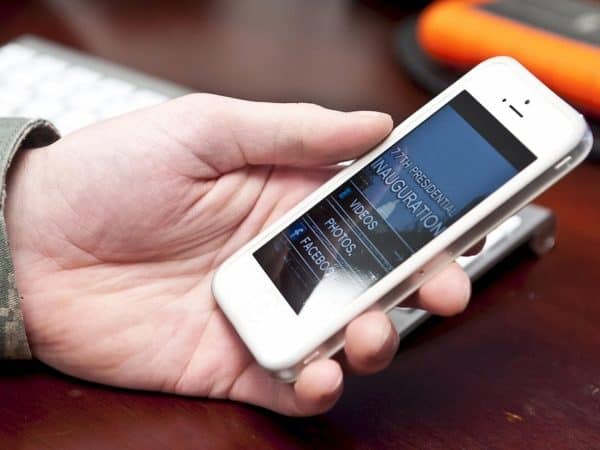
 Police chiefs in Canada are asking for a law to be passed that would require suspected criminals to turn over passwords to aid in the investigation of a crime.
Police chiefs in Canada are asking for a law to be passed that would require suspected criminals to turn over passwords to aid in the investigation of a crime.
As of now in Canada there is nothing that says you are required by law to hand over passwords. But many countries including Australia, Finland, and the United Kingdom have what are known as key disclosure laws that require operators of devices and even telecommunication companies to surrender passwords and other possible incriminating information to aid in investigation.
Currently, Canadians are able to operate online with near-complete anonymity and without fear of consequence using tools such as proxies and VPN’s. And some say the proposal removing these conventions, which is being made by the the Canadian Association of Chiefs of Police, would be an infringement on the rights of Canadians.
“The chiefs proposed password scheme is wildly disproportionate, because in the case of a laptop computer it would mean handing over the key to your whole personal life, and also on the face of it, this seems like it’s clearly unconstitutional.” says David Christopher, a spokesman for OpenMedia, who spoke to Yorkton News.
Although there are no laws requiring you to hand over your passwords, a man named Alain Philippon from Quebec sparked a debate recently when he was fined $500 after refusing to provide his mobile phone password to border agents at the Halifax International Airport. Philippon was in possession of multiple phones, a large sum of cash, and his luggage tested positive for cocaine. He was charged with hindering or obstructing border officials, a charge that doesn’t stand well with civil liberties proponents.
“This is kind of an old-fashioned law that we have, that was designed before there was even such a thing as a smartphone,” Josh Paterson, executive director of the BC Civil Liberties Association told the CBC. “And the law, we think, needs updating. There should be some strict standards set up around the kind of searches of smartphones and computers that CBSA officials are allowed to do at the border when they don’t have individualized suspicion about someone.”
Recently, in the United States, the FBI was also able to gain access to an iPhone owned by the San Bernardino mass shooter after Apple refused to cooperate. A hacker brought a flaw in the iPhones system to the FBI’s attention that Apple itself was not aware of. The FBI then was able to exploit the flaw, the exploit in question allegedly disables the iPhone from wiping after 10 failed attempts which then allowed the FBI to brute force its way into the terrorist’s phone. Although the exploit only works for the iPhone 5c running iOS 9 it still begs the question of truly how safe these devices that hold endless amounts of personal information truly are.
The question for Canadians is a familiar one. How much privacy are we willing to forfeit in the name of security?
Leave a Reply
You must be logged in to post a comment.



 Share
Share Tweet
Tweet Share
Share




Comment